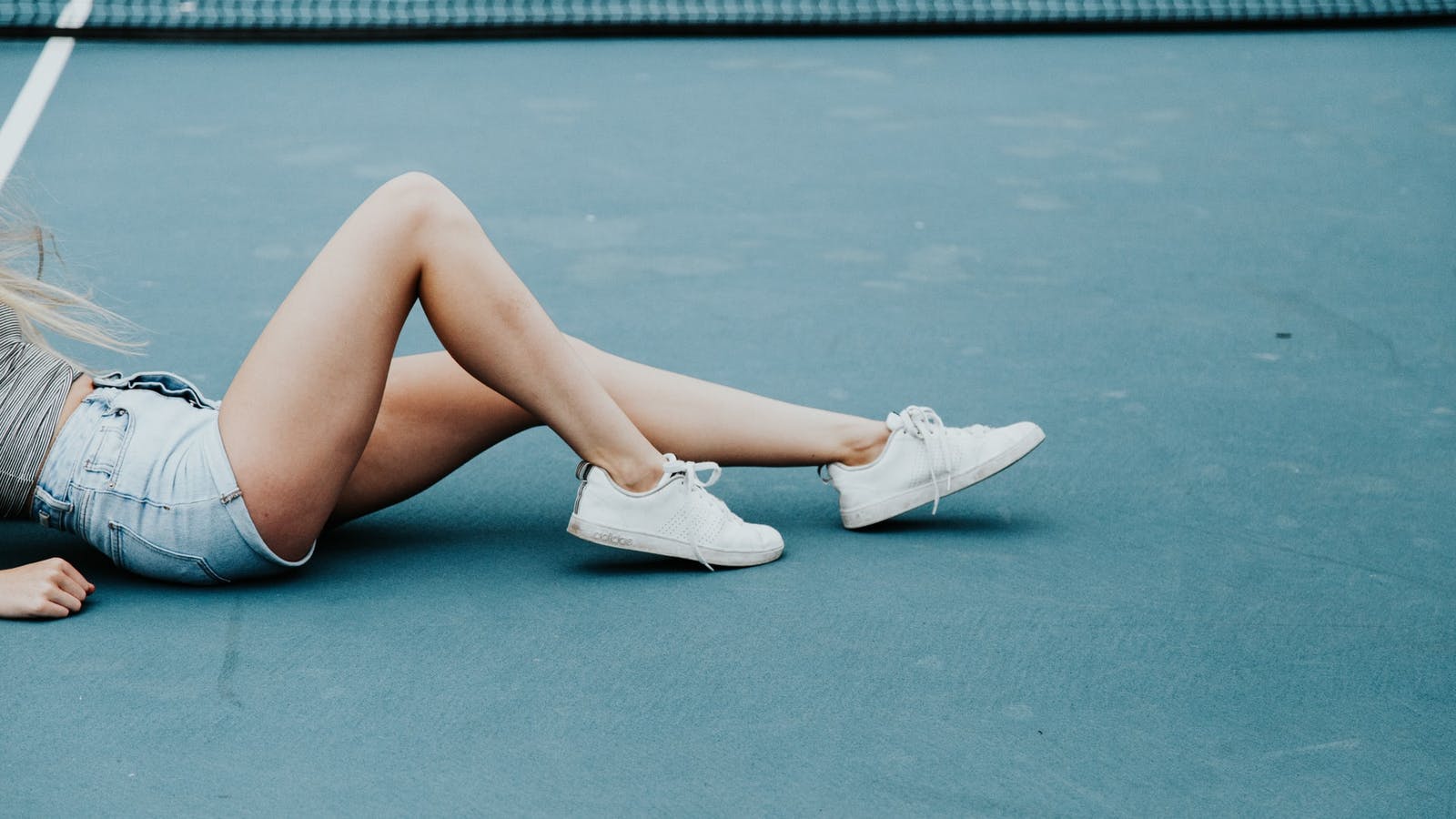Feeling of heaviness at the end of the day, knobby appearance of the calves, these are the symptoms of difficult venous return causing the feeling of heavy legs. These symptoms are especially common during summer heat episodes, prolonged periods of standing or a significant sedentary lifestyle such as during confinement. Unfortunately, it is an acquired deficiency that should be treated regularly (4 times a year minimum) and for life to better cope with the pain and prevent the appearance of varicose veins. How to relieve heavy legs naturally? Here are some tips for finding lighter legs with ease.
Heavy and painful legs, what natural remedies?
The best treatment to relieve heavy legs is to change your lifestyle:
- Focus on foods that promote good blood circulation, that is to say those rich in vitamin C. Fruit side: blackcurrant, kiwi, orange, lemon, papaya, guava, strawberry and raspberry; vegetable side: parsley, pepper, sorrel, broccoli, cabbage. Consume them quickly after purchase and heat them little, because vitamin C oxidizes with heat and light.
- Use lemon and fresh parsley as often as possible on your fish, in your sauces, salads, on vegetables, in fruit salads because they are rich in bioflavonoids which have circulatory effects.
- Avoid spices that sting and heat because they accentuate the dilation of the veins such as chili, curry, paprika, pepper and wasabi. Ginger is in between, it's up to individual tolerance. I'll let you make your own choice.
- Focus on lean proteins: fatty and white fish, oysters, white meats without the skin, lean red meats: ground steak < 15% fat, roast beef, beef steak, duck breasts, pork tenderloin .
- Decorate your dishes with aromatic herbs such as rosemary, Provence herbs, ginger, turmeric, and cloves in the cooking water to replace salt and stock cubes.
- To avoid edema associated with poor blood circulation, limit salt, which retains water; it is present in cold meats, bread, cheese, white ham, prepared caterer meals and industrial products.
- Season with olive, flax, walnut, camelina oils, eat walnuts and lamb's lettuce for their anti-inflammatory omega 3 content.
- Drink enough low-mineralized water (suitable for infant bottles such as Cristalline or Mont Roucous) during the day. To drink useful and effective, it is recommended to drink throughout the day, in small sips, outside of meals, so as not to bind water to salt and before 7 p.m. However, you must always listen to your body and therefore its thirst. If it's very hot and you've been exercising, of course you need to hydrate. If this is not the case, it is either because we did not drink enough during the day, or because we ate too salty. And yes ! Salt calls for water and stores water. You will have understood, we avoid the salt shaker in favor of aromatics.
Every day, move, walk, do physical activity with exercises that activate the muscles in your legs to stimulate circulation. Walking every day is the best way to avoid these sensations and maintain good venous return, always on 2 cm of heel, better for the arch and the functioning of the venous valves.
At the end of your shower, pass the jet of cold water, from the ankles upwards to the thighs. You can also massage vigorously with a horsehair glove to soothe pain and soothe your legs.
At the end of the day, make a bath of red vine and rosemary: 60 grams of each in a muslin bag with 25 cl of boiling water, leave to infuse for 15 minutes in a basin, then fill the basin with water cold and soak feet for 15 minutes.
At night, remember to sleep with your legs elevated. You can also be prescribed compression stockings to wear as much as possible. It's not always very glamorous but our grandmothers were right, it's super effective. And under clothing they go unnoticed.
If you can also avoid underfloor heating in your home, this weakens blood circulation in the legs.
What essential oils are used for heavy legs?
Lemon essential oil, a circulatory stimulant, is useful for heavy legs. It can be used pure, 2 drops under the tongue each morning EXCEPT when taking anticoagulant medications.
In massage, it is also effective: mix in a 50 ml bottle fitted with a dropper 1 ml or 30 drops of rosemary camphor essential oil, 2 ml or 60 drops of lemon essential oil, 1 ml i.e. 30 drops of evergreen cypress essential oil, 1 ml i.e. 30 drops of peppermint and 20 ml of calophyll vegetable oil and complete with macadamia vegetable oil. Apply 10 drops of the mixture to the painful area. CAUTION: in case of a history of maltose, breast cancer, “hormone-dependent” fibroids, replace the evergreen cypress with juniper.
A second essential oil of interest in cases of heavy legs is pistachio mastic essential oil. This powerful microcirculatory system acts on the capillaries which burst and leave their fine red or purplish streaks on the legs. This essential oil is used in massage. Mix 5 ml of pistachio mastic with 10 ml of apricot kernel vegetable oil in a 15 ml tinted dropper bottle. Apply a few drops to the painful area once a day until it disappears.
Heavy legs and varicose veins, what are the solutions?
If the feeling of heavy legs is only on one leg, it is possible that the cause is the presence of a varicose vein.
Where do varicose veins come from?
Varicose veins are sinuous dilatations of the superficial veins of the lower limbs: the saphenous vein and its branches. Under the effect of gravity and the dilation of the veins in diameter, the blood which normally circulates from bottom to top, tends to stagnate or even flow back into these veins because the valves (which regulate blood flow) do not function. more normally.
More specifically, when someone develops varicose veins or spider veins, it is because their blood has become chronically dehydrated and chronically thick over the years.
When blood becomes thick, our blood vessels tend to narrow slightly.
The heart then has to work harder to remove "muddy", toxic, dehydrated blood from the lower extremities and this increased suction pulls the walls of the veins inward, making the movement of blood slower.
Varicose veins can be caused by prolonged standing situations inherent to certain professions, being overweight, a sedentary lifestyle, genetics of poor venous return or even poor diet. Getting worse with age, it is better to act before they appear or get worse and a doctor advises you to have surgery to treat sclerosis, a solution that is not always convincing in the long term.
In psychosomatics, the cause of varicose veins is the result of repressed or retained emotions that prevent the free flow of blood through the veins. It will be beneficial to go back a little before the period when the first varicose veins appeared and to remember if there was an event or situation at that time that generated sadness or pain. Could this be the result of buried, ignored emotions? In order to promote healing, awareness of the cause will not be sufficient, it will also be necessary to achieve emotional release in connection with the emotions experienced.
How to relieve varicose veins on a daily basis?
Diet can have a very significant impact on varicose veins. The first thing to do is therefore to follow a healthy and appropriate diet as mentioned below. Boost your consumption of fresh fruits and vegetables even more (raw or steamed depending on individual tolerance) to maintain healthy hydration.
The carrot in particular is a vegetable rich in antioxidant substances, which stimulates blood circulation to improve the oxygenation of cells and helps to improve the drying out of organic fluids and therefore also constipation problems. Beetroot is also excellent for promoting good digestion and blood circulation.
Which plants to relieve varicose veins?
Horse chestnut is the miracle ingredient for the treatment of varicose veins. In addition to tightening swollen veins, it calms the pain associated with varicose veins. However, its taste makes it difficult to drink. As an infusion: prepare a herbal tea of horse chestnuts (or chestnut leaves) with honey, to soften the taste.
Red vine activates blood circulation and relieves heavy legs. Its leaves are beneficial in cases of venous disorders. As an infusion: in a cup of hot water, infuse 1 teaspoon of dry red vine leaves for 10 minutes. Strain and drink 1 to 3 cups per day.
Also remember to relieve the liver with rosemary herbal tea or a hot water bottle in its location (below the right breast) in the evening after dinner for 20 to 30 minutes.

